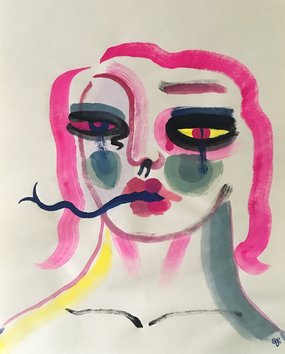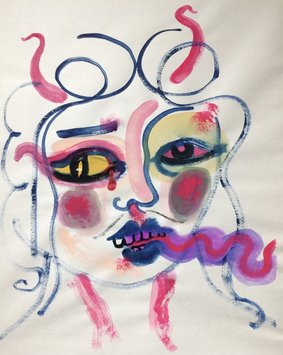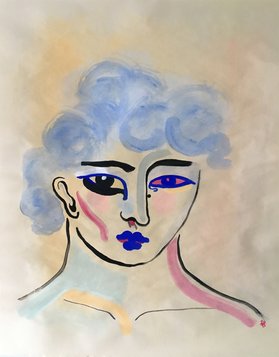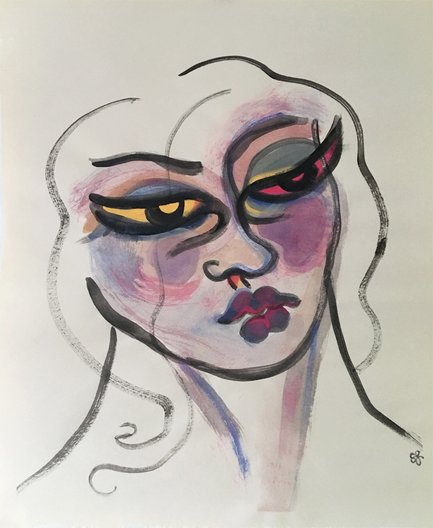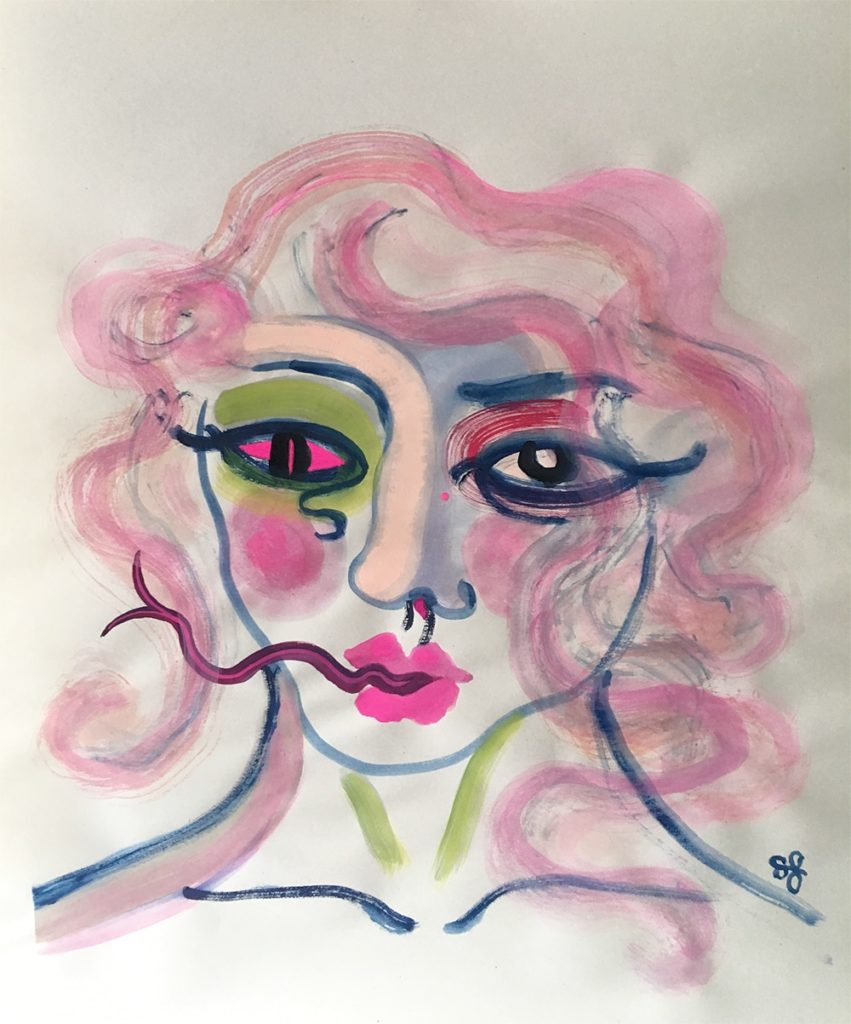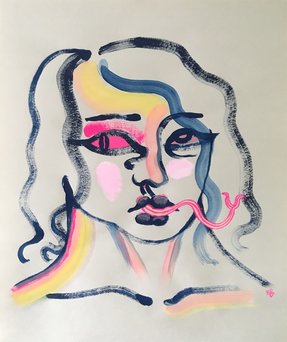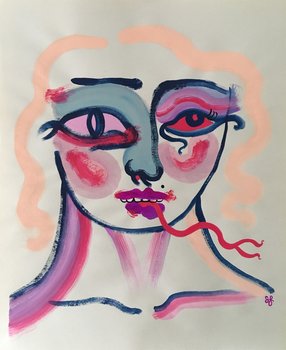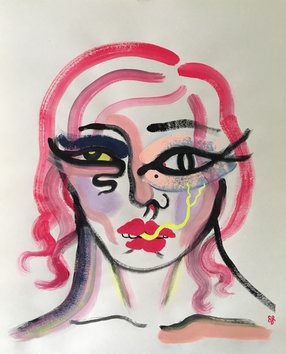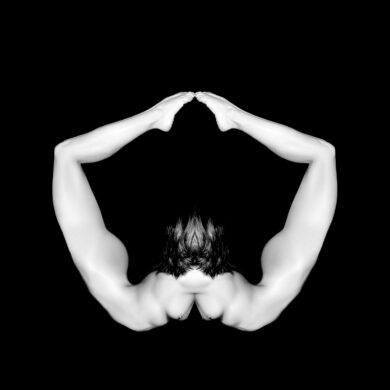In line with the global Nasty Women movement, which curates international exhibitions, we as Curated by Girls could not stay behind or stay silent. In addition to the marches and protests, we want to raise a fist against racism, fascism, sexism and oppression through art. This online exhibition is nternational, no boundaries. We can have our voices be heard and our visions be seen. We are NASTY, and we are UNITED in the diversity that Curated by Girls stands for.
Sheila Forde @sheilaforde is a Canadian artist and feminist who lives and works near the Windsor-Detroit border. She believes that women and women’s bodies have been demonized by patriarchy throughout history and this view of women continues to this day.
“As women, we have long been considered ‘nasty’. Even today, images posted of the female breast are removed by sites like Facebook or Instagram, an act which seems to support the patriarchal view that there is still something wrong with the female body as opposed to the male’s, our bodies are something we should cover up, should be ashamed of, we are offensive, we are nasty. If we continue to judge women and women’s bodies in this way, we are never normalizing the view of any female body as one which can be respected, free of stigma.We need to teach our children that women’s bodies deserve the same respect as men’s, that they are not shameful or wrong. We need to fight patriarchal views which harm every gender. The moral condemnation of women, of our bodies and of our sexuality is an ingrained construct of patriarchy. Let’s recognize this. We need to continue the fight for autonomy over our bodies and our reproductive rights. We need to fight for the rights of women of colour, of trans women and women in the LGBTQ+ community, and of women sex workers. These are the women whose voices are the least heard and whom are the most vulnerable. As the artist Jenny Holzer wrote, I AM AWAKE IN A PLACE WHERE WOMEN DIE. My recent work plays on themes around the demonization of women and of our bodies as it explores our fears, sexuality, our collective frustration with patriarchy, our power struggles and our fierceness.”


